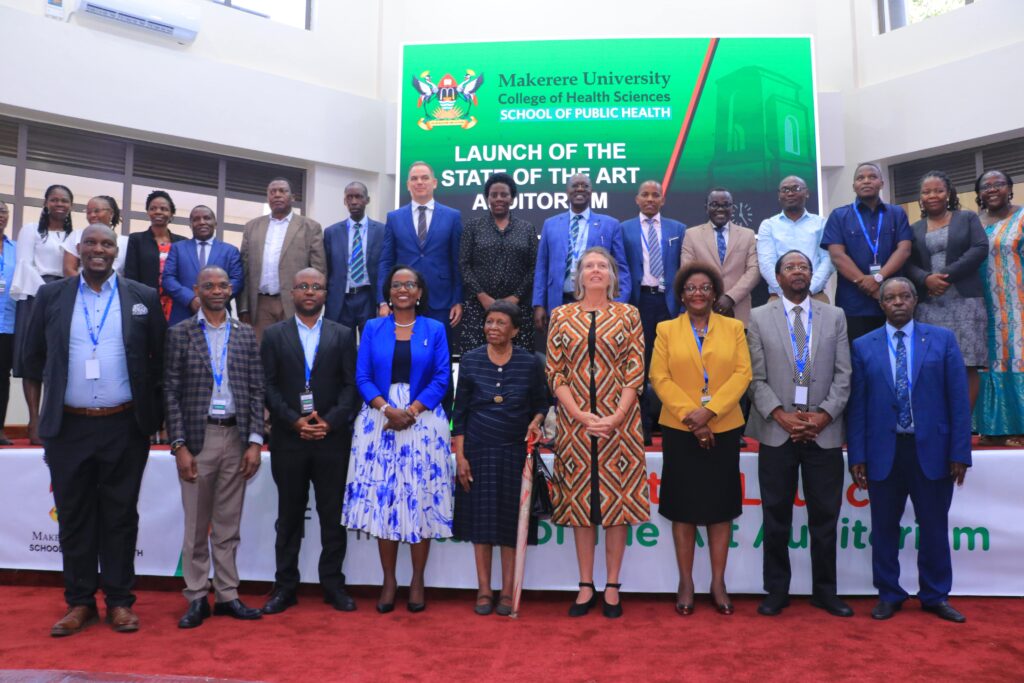By Vincentia Khakasa & Julius Mugaga/Umoja Standard.
KAMPALA: Makerere University School of Public Health (MakSPH) is a leading public health training and research institution in Sub-Saharan Africa. It is one of the schools under the College of Health Sciences, a constituent College of Makerere University
Marking a groundbreaking initiative, MakSPH, a constituent School within the College of Health Sciences at Makerere University, embarked on the construction of the new MakSPH Building in February 2020. Positioned as a leading institution in public health research and training in Sub-Saharan Africa, Makerere University is at the helm of this endeavor.
More than just a physical structure, the MakSPH Building represents a bold effort to provide state-of-the-art amenities for the next generation of public health professionals. Additionally, it aims to enhance Makerere University’s scientific capabilities in addressing urgent issues such as the Covid-19 pandemic, the Ebola virus sickness, and other challenging public health concerns.
This ambitious project entails the construction of an eight-story office building spanning 12,614 square meters. It will house lecture halls, tutorial rooms, innovation labs, and auditoriums, with dedicated spaces for postdoctoral trainees, doctoral students, and research fellows. With a projected cost of $10,000,000 for the fully equipped facility, support is respectfully sought to ensure the successful completion of this landmark project.
Envisioned as a central hub for teaching, research, and community engagement, the MakSPH Building aims to provide a dynamic space where students across various public health disciplines can immerse themselves in learning both within and beyond the traditional classroom setting.
Stakeholders are invited to support this cause, working together to shape the future direction of public health research and teaching.
Over the past 20 years, MakSPH has expanded from 1 to 9 academic programs; an undergraduate program, 9 Masters programs and a PHD in Public Health. The number of trainees has grown from 40 to over 1000 and still growing.
However, there hasn’t been a corresponding rise in training and research space and for years, MakSPH has been constrained by limited space to accommodate its students, staff and research programs. In fact, over $113,000 is spent annually by the school on renting office space. Hence, rent and space remain our biggest constraints in the pursuit of our mission.
In response to this challenge, MakSPH embarked on a project in 2019, aimed at constructing a new facility on the main campus. This facility will serve as dedicated space for research fellows, doctoral students, and post-doctoral trainees.
Since then, the school has raised over $3,454,314 from outstanding partners and various fundraising drives, including the recently awarded USAID ASHA grant of $1.1million that came through JHU. Additional funding sources for the project include $420,000 from the Dutch Organization for Internationalization in Education (NUFFIC) through the SET-SRHR project, $100,000 from the Rockefeller Foundation, and $2,133,822 from MakSPH’s internally generated funds.
Contributions from the MakSPH Staff community total $46,043, with an additional $144,972 from the four MakSPH departments. Private Institutions/Companies have generously donated $52,528, while individual contributions have surpassed $131,949. Makerere University has also pledged $675,000 towards the project. The estimated cost for the completion of the fitted building stands at $10,000,000. As of now, the School has raised $4,804,314, with an outstanding deficit of $5,195,686.
The new facilities, combined with our existing infrastructure, will empower MakSPH to deliver world-class and contemporary training for public health professionals. Equipped with the skills to tackle both current and emerging health challenges, our graduates will be at the forefront of promoting global well-being.


